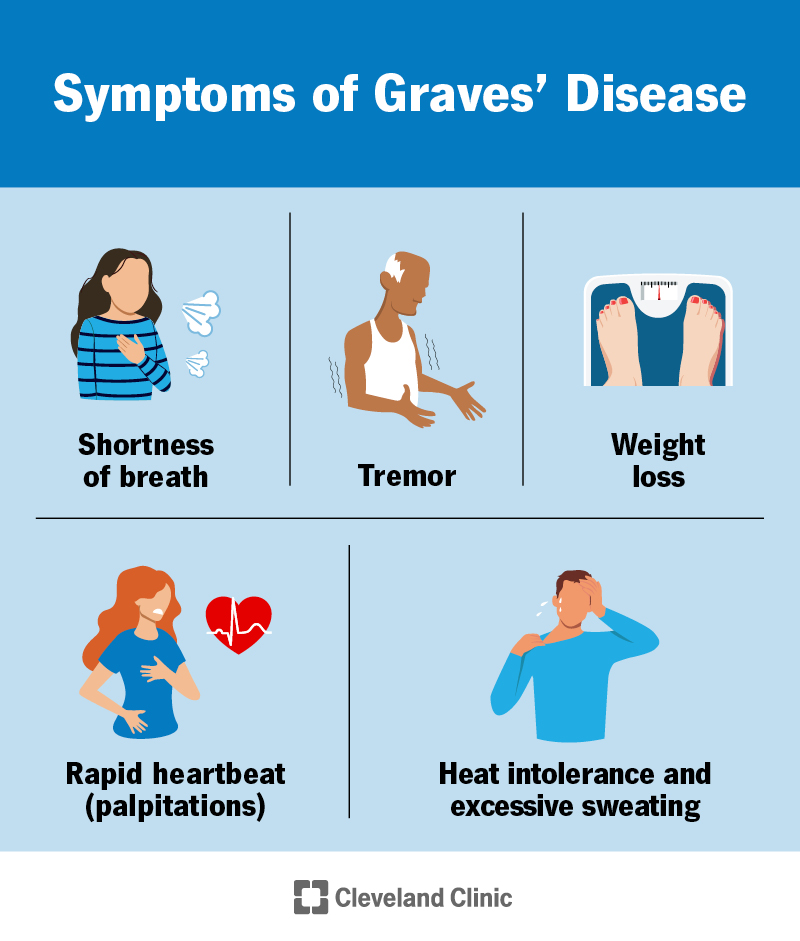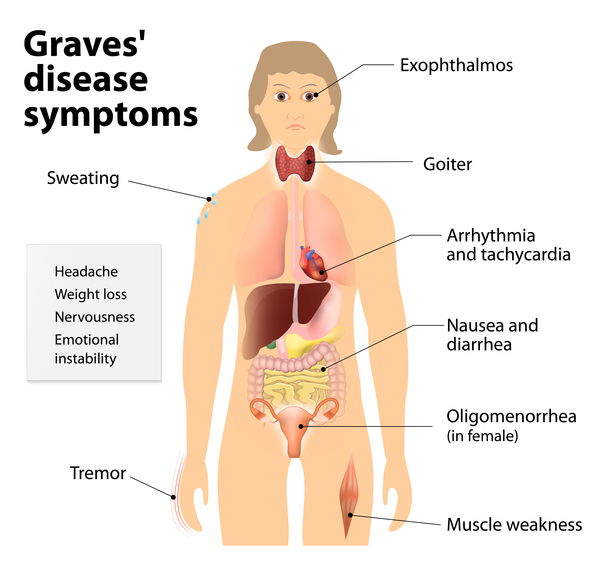what are the symtoms of graves didease
Graves' disease is an autoimmune disorder that affects the thyroid gland, leading to an overproduction of thyroid hormones. The symptoms of Graves' disease can vary among individuals but typically include the following:
-
Cardiovascular Symptoms: Many people experience a rapid or irregular heartbeat, which may also be accompanied by chest pain.
-
Weight Issues: Individuals often report weight loss despite having an increased appetite, indicating that the body is burning calories at an accelerated rate.
-
Mental Health Symptoms: Anxiety or nervousness is common, and patients may have difficulty concentrating or experience memory problems. This can also include factors like irritability and emotional instability.
-
Physical Symptoms: Common physical manifestations include fatigue, weakness, shaky hands, and muscle weakness. Some may also have trouble sleeping due to heightened anxiety and physical unrest.
-
Gastrointestinal Effects: Frequent bowel movements or diarrhea can occur, which is another indication of increased metabolic activity.
-
Eye Problems: A distinct feature of Graves' disease is the possibility of developing bulging eyes (known as Graves' ophthalmopathy), along with puffy eyes.
-
Men's Health: It can also cause breast enlargement in men, a condition known as gynecomastia.
The links provided below offer more extensive information regarding the symptoms and management of Graves' disease:
- Cleveland Clinic
- Yale Medicine
- NIDDK
- Penn Medicine
- Mount Sinai - New York
- WebMD
- American Thyroid Association
If you suspect you have Graves' disease or are experiencing these symptoms, it is advisable to consult with a healthcare provider for proper diagnosis and treatment.
Sources


Related Questions
Work fast from anywhere
Stay up to date and move work forward with BrutusAI on macOS/iOS/web & android. Download the app today.
